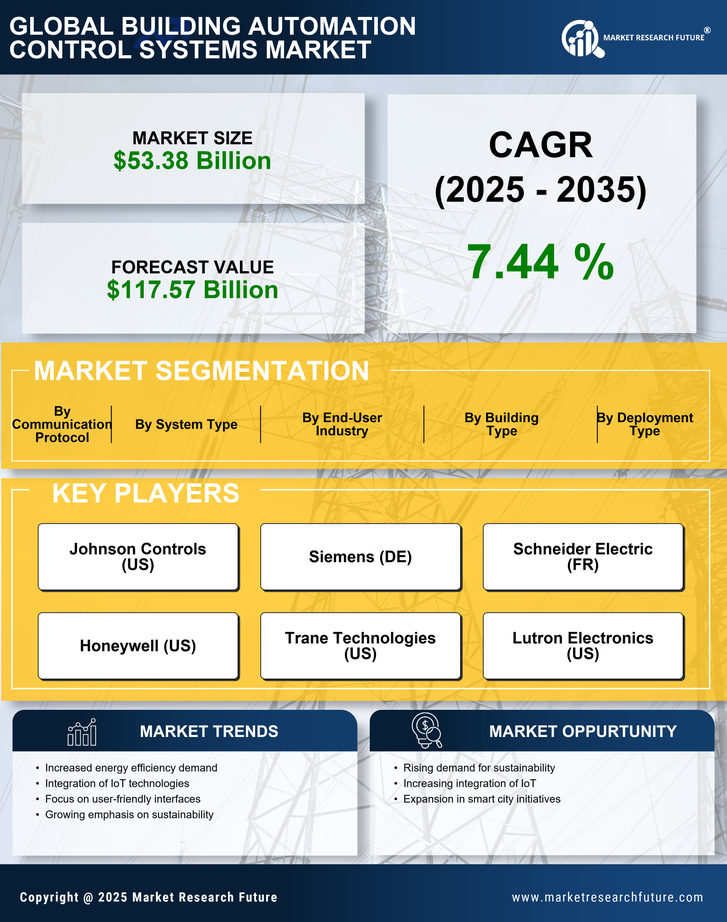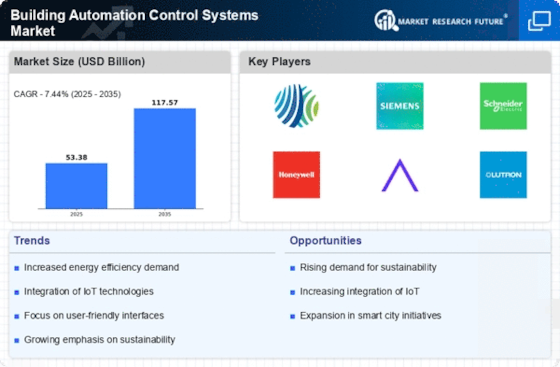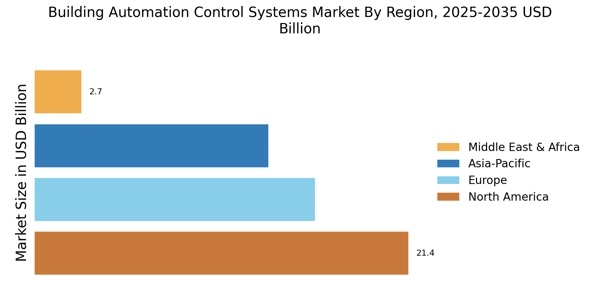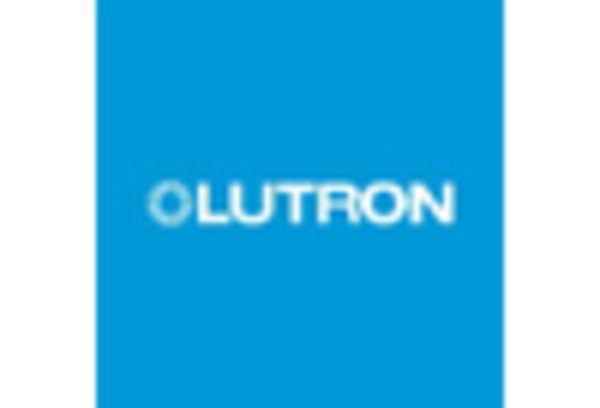Increased Focus on Sustainability
The heightened focus on sustainability is a crucial driver in the Building Automation Control Systems Market. As environmental concerns gain prominence, businesses and governments are prioritizing sustainable practices. Building automation control systems play a vital role in achieving sustainability goals by optimizing resource use and minimizing waste. For instance, systems that control lighting, heating, and cooling can significantly reduce a building's carbon footprint. The market for sustainable building technologies is projected to grow substantially, with investments in green buildings expected to reach USD 300 billion by 2025. This trend suggests that building automation systems will increasingly incorporate sustainable technologies, aligning with the broader shift towards environmentally responsible construction and operation.
Rising Demand for Smart Buildings
The increasing demand for smart buildings is a pivotal driver in the Building Automation Control Systems Market. As urbanization accelerates, the need for efficient building management systems becomes paramount. Smart buildings utilize advanced technologies to optimize energy consumption, enhance occupant comfort, and improve operational efficiency. According to recent data, the smart building market is projected to reach USD 1 trillion by 2025, indicating a robust growth trajectory. This trend is likely to propel the adoption of building automation control systems, as they are integral to the functionality of smart buildings. The integration of these systems allows for real-time monitoring and control, which is essential for meeting the expectations of modern occupants and regulatory standards.
Growing Importance of Cybersecurity
The growing importance of cybersecurity is becoming a significant driver in the Building Automation Control Systems Market. As building automation systems become more interconnected, the risk of cyber threats increases. Organizations are recognizing the need to protect their systems from potential breaches that could compromise safety and operational integrity. The cybersecurity market for building automation is projected to grow at a rate of 18% annually, as companies invest in robust security measures. This focus on cybersecurity not only safeguards sensitive data but also enhances the overall reliability of building automation systems. Consequently, the emphasis on cybersecurity is likely to shape the future development and deployment of building automation control systems.
Integration of Artificial Intelligence
The integration of artificial intelligence (AI) into building automation control systems is emerging as a transformative driver in the Building Automation Control Systems Market. AI technologies enable predictive analytics, which can enhance system performance by anticipating maintenance needs and optimizing energy usage. The AI market in building automation is expected to witness a growth rate of over 20% annually, reflecting the increasing reliance on intelligent systems for building management. This integration not only improves operational efficiency but also enhances user experience by providing personalized environments. As AI continues to evolve, its applications in building automation are likely to expand, further driving market growth and innovation.
Advancements in Energy Management Solutions
Advancements in energy management solutions are significantly influencing the Building Automation Control Systems Market. With energy costs on the rise, organizations are increasingly seeking innovative solutions to manage their energy consumption effectively. Building automation control systems provide tools for monitoring energy usage, identifying inefficiencies, and implementing energy-saving measures. The market for energy management systems is expected to grow at a compound annual growth rate of 15% through 2025. This growth is driven by the need for organizations to reduce operational costs and comply with stringent energy regulations. Consequently, the integration of energy management features into building automation systems is becoming a standard practice, enhancing their appeal and functionality.


















